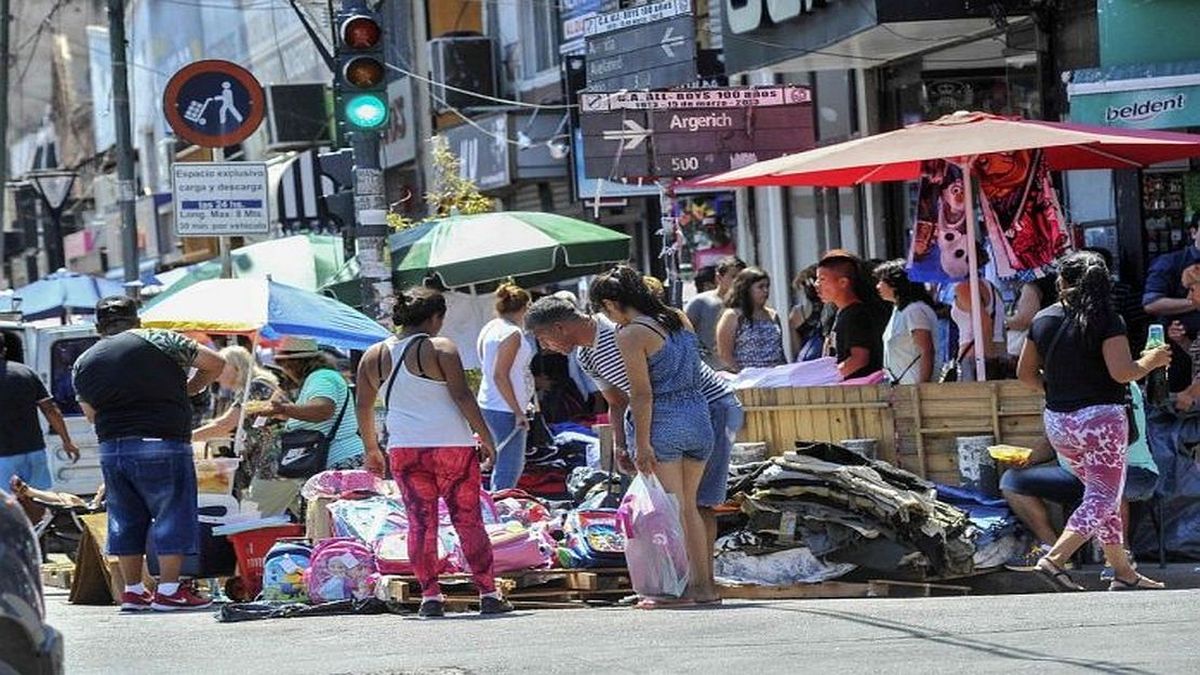The most commercialized item was Clothing and footwear, which accounted for 60.6%, followed by Food and beverages with 18.4% of the total. The main illegal marketing center for these categories was Zona Once, between the avenues and streets, and the Retiro station, between the stations and squares. On the other hand, there was a 5.5% drop in piracy cases compared to September 2021, when a total of 760 cases were detected. Zone Eleven was positioned as the main area for the sale of counterfeit products.
The CAC report surveyed the streets: Av. Avellaneda, Av. Rivadavia, Av. Pueyrredón, Zona Liniers, Zona Once, Av. Corrientes, Peru, Av. Santa Fe, Av. Córdoba, Av. Cabildo, Av. Juramento, Zona Microcentro, 9 de Julio, Av. De Mayo, Av. Callao and Lavalle. Likewise, the sample also includes the Once de Septiembre Station, Rivadavia Park, Retiro Station, Constitución Station, Plaza de Mayo, Lacroze Station and Belgrano C Station.
The protests of the merchants
Contrary to the belief that the economic crisis favors street vending, these CAC data show a change in trend in a striking way. Last Friday, merchants and neighbors demonstrated in the Once area to complain about the illegal sale that they consider to be “unfair competition.” In contrast, the “manteros” (street vendors who deny being a “mafia”) affirmed that they receive a permanent attack and little understanding of the social situation that various families live, of which the sale is their main income. On both sides of the postures, there is a claim to the city government for not finding a resolution to the conflict. The problem seems to be more social than political.
According to official information from the Buenos Aires government, the operations are in charge of the General Directorate of Operational Coordination of the Ministry of Justice and Security. Together with them Officials from the General Directorate of Operational Coordination work with them, together with Inspectors from the Government Control Agency (AGC), Inspectors of Urban Inspection of the Ministry of Public Space and Urban Hygiene, Traffic Security Agents and Police personnel from the city.
An explanation for the drop in illegal stalls could be given by the so-called “swallow” street vendors who out of fear prefer to mobilize and sell their products on foot to evade controls.
Source From: Ambito
David William is a talented author who has made a name for himself in the world of writing. He is a professional author who writes on a wide range of topics, from general interest to opinion news. David is currently working as a writer at 24 hours worlds where he brings his unique perspective and in-depth research to his articles, making them both informative and engaging.




